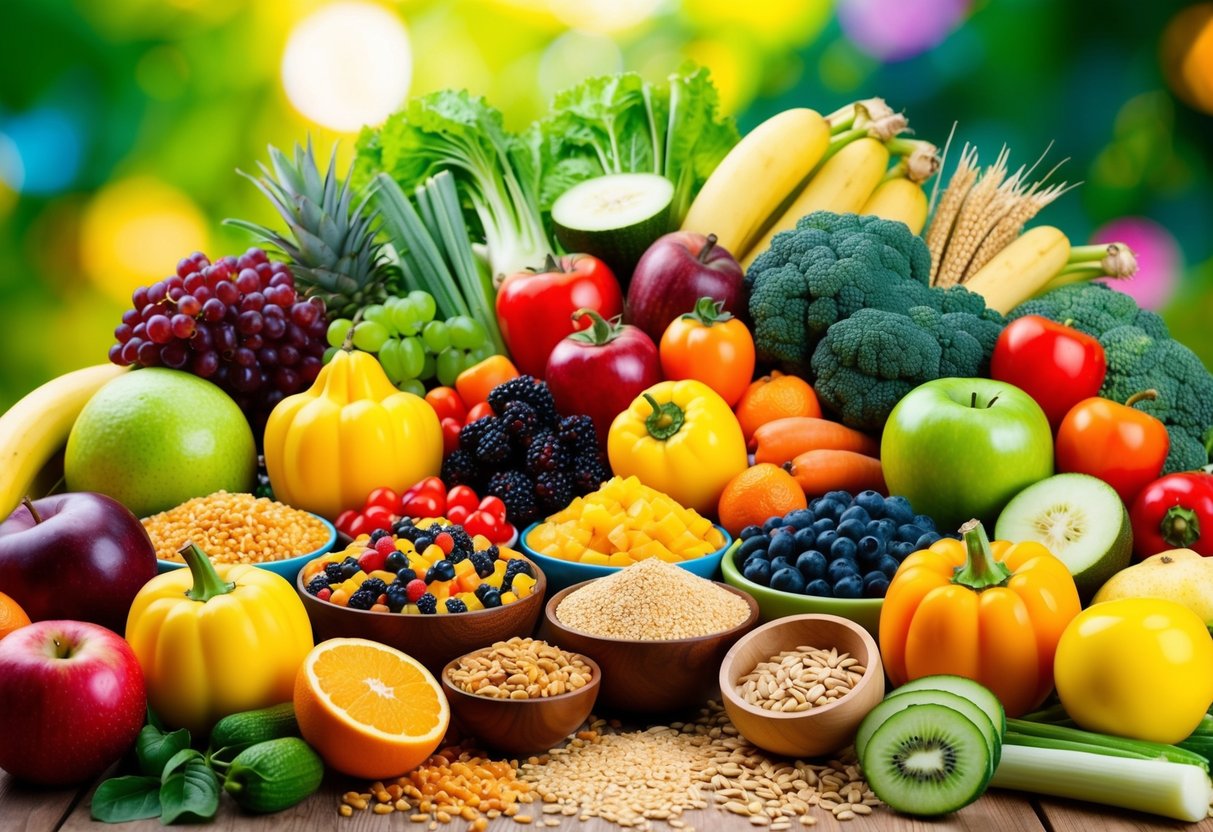Ultimate Guide to Gut-Healthy Foods: Boost Digestion and Immunity
Gut-Boosting Foods and Ingredients
Gut health is crucial for digestion and immunity. Including specific foods like probiotics and prebiotics can improve gut function, while anti-inflammatory ingredients may reduce digestive discomfort.
Probiotic Powerhouses
Probiotics are live microorganisms that provide health benefits when consumed in adequate amounts. Yogurt and kefir are among the most popular sources, packed with beneficial bacteria that support gut health. These dairy products contain strains such as Lactobacillus and Bifidobacterium, which help maintain a balanced gut microbiota. Sauerkraut and kimchi, fermented vegetables, also offer probiotics, contributing to gut health while adding flavor and variety to meals. Regular consumption of these foods can help alleviate symptoms like bloating and improve digestion. Incorporating them into daily meals can therefore lead to better overall gut function.
Prebiotic Champions
Prebiotics are non-digestible fibers that feed beneficial bacteria in the gut. Foods rich in prebiotics include onions, garlic, and oats, each promoting the growth of healthy gut flora. Onions and garlic contain compounds such as inulin, which nourish gut bacteria and enhance digestion. Oats, when included in the diet, offer beta-glucans that support gut health by promoting beneficial bacteria growth. Legumes, beans, and nuts, also serve as excellent sources of prebiotics. These foods, when combined in a balanced diet, contribute to a healthier gut environment by ensuring beneficial bacteria thrive. Incorporating these into meals can improve digestion over time.
Anti-Inflammatory Favorites
Anti-inflammatory foods play a vital role in maintaining gut health by reducing irritation and discomfort. Ginger, known for its anti-inflammatory properties, can soothe digestive issues like nausea and help regulate other digestive processes. Polyphenols, found in foods such as berries, nuts, and seeds, offer antioxidant properties that reduce inflammation. Incorporating these into the diet can improve gut function by lowering inflammation levels. Including a variety of these foods not only enhances gut health but also supports overall well-being. Making them a regular part of meals can lead to noticeable benefits in digestion and immunity.
Impacts on Digestive Symptoms

Gut-healthy foods can play an important role in managing symptoms such as constipation, diarrhea, gas, and bloating. Specific food choices may help alleviate these digestive issues by promoting regularity and improving gut flora balance.
Managing Constipation and Diarrhea
Constipation and diarrhea, though opposite in nature, can be influenced by dietary choices. Fiber-rich foods, such as whole grains, fruits, and vegetables, are crucial for preventing constipation as they add bulk to stool and promote regular bowel movements. It is important to gradually increase fiber intake to avoid discomfort.
For diarrhea, foods like bananas, rice, and applesauce are often recommended due to their binding effects. Hydration is essential in managing both constipation and diarrhea, as it helps maintain stool consistency and supports efficient digestion. Increased water intake can soften stools, making them easier to pass, while also compensating for fluid loss during diarrhea episodes.
Food Choices to Relieve Gas and Bloating
Gas and bloating can be uncomfortable, often resulting from certain foods or eating habits. High-fiber foods such as beans and lentils might lead to increased gas when consumed in large quantities. Adding these slowly to the diet can help the body adjust.
Consuming small, frequent meals instead of larger ones can minimize bloating. Probiotic-rich foods like yogurt or fermented products help balance gut bacteria, potentially reducing these symptoms. Avoiding carbonated drinks and chewing gum can also reduce swallowed air, another contributor to bloating and gas.



